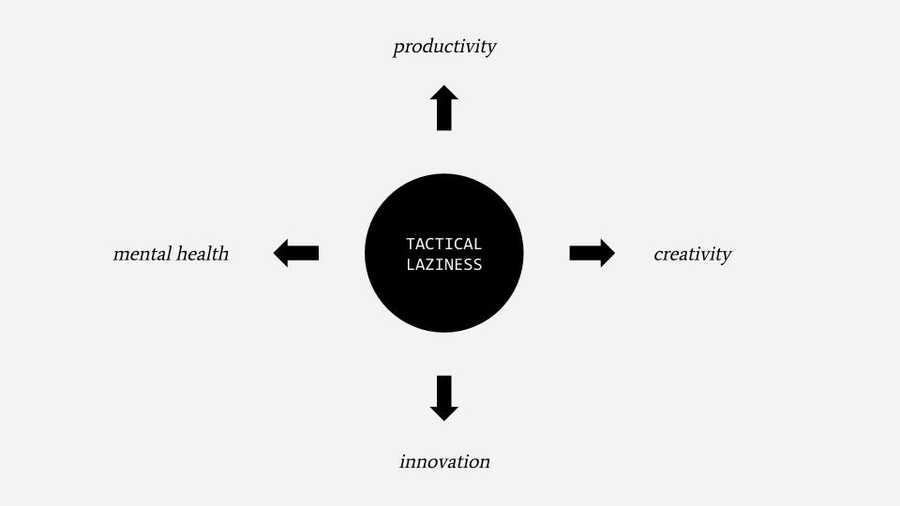The benefits of laziness: why being a lazy person can be good for you
Curated from: nesslabs.com
Ideas, facts & insights covering these topics:
6 ideas
·49.2K reads
585
7
Explore the World's Best Ideas
Join today and uncover 100+ curated journeys from 50+ topics. Unlock access to our mobile app with extensive features.
Tactical Laziness
Laziness or Sloth is the disinclination to use energy and is seen as a negative trait in most cultures. Being lazy has also been associated with being a slacker, or a good-for-nothing person wasting time.
New scientific research tells a completely different story and lists out many advantages of being a couch potato. Being tactically lazy can actually be good for us.
868
10K reads
"Progress isn’t made by early risers. It’s made by lazy men trying to find easier ways to do something".
ROBERT A. HEINLEIN
978
10.9K reads
A New Approach To Slacking
Humans may be seeing laziness upside down, as it may not really be a sign of inefficiency or unproductivity, but a result of being able to work smartly and free up time to do nothing. Sitting lazily can also trigger further smart work.
806
8.07K reads
The Benefits Of Laziness
- Many smart solutions like the remote control, smart speakers, escalators and even the light switch are the work of lazy people.
- Lazy people often actively procrastinate, and unlike the ‘passive’ procrastinators, they have better control over their work and time and perform well under pressure.
- As lazy people see their energy as an expenditure that can be saved like time or money, they avoid unnecessary, low-output tasks, and prefer high-leverage tasks.
- Lazy people are the pioneers of automating, delegating or eliminating monotonous and time-consuming tasks.
916
6.88K reads
Laziness And Mental Health
- Slacking is good for our mental health, as being distracted and busy blocks our thoughts and feelings, leading to suppression of truth, and many mental ailments can arise from avoiding our real thoughts.
- Resting and staying idle recharges our ‘energy stores’ just like a daytime nap refreshes us. Breaks are good for the body.
837
6.73K reads
Laziness And Motivation
- Many problems just need time to be auto-solved, and taking action may be detrimental to them. Lazy people often wait out and let the problem die on their own.
- Being lazy may be an indication of a lack of motivation, lethargy, tiredness, hunger or a change that may be required on what we do with our lives.
834
6.49K reads
IDEAS CURATED BY
Ness Labs provides content, coaching, courses and community to help makers put their minds at work. Apply evidence-based strategies to your daily life, discover the latest in neuroscience research, and connect with fellow curious minds.
Ness Labs's ideas are part of this journey:
Learn more about personaldevelopment with this collection
How to set achievable goals
How to prioritize self-care
How to create healthy habits
Related collections
Similar ideas
Read & Learn
20x Faster
without
deepstash
with
deepstash
with
deepstash
Personalized microlearning
—
100+ Learning Journeys
—
Access to 200,000+ ideas
—
Access to the mobile app
—
Unlimited idea saving
—
—
Unlimited history
—
—
Unlimited listening to ideas
—
—
Downloading & offline access
—
—
Supercharge your mind with one idea per day
Enter your email and spend 1 minute every day to learn something new.
I agree to receive email updates

